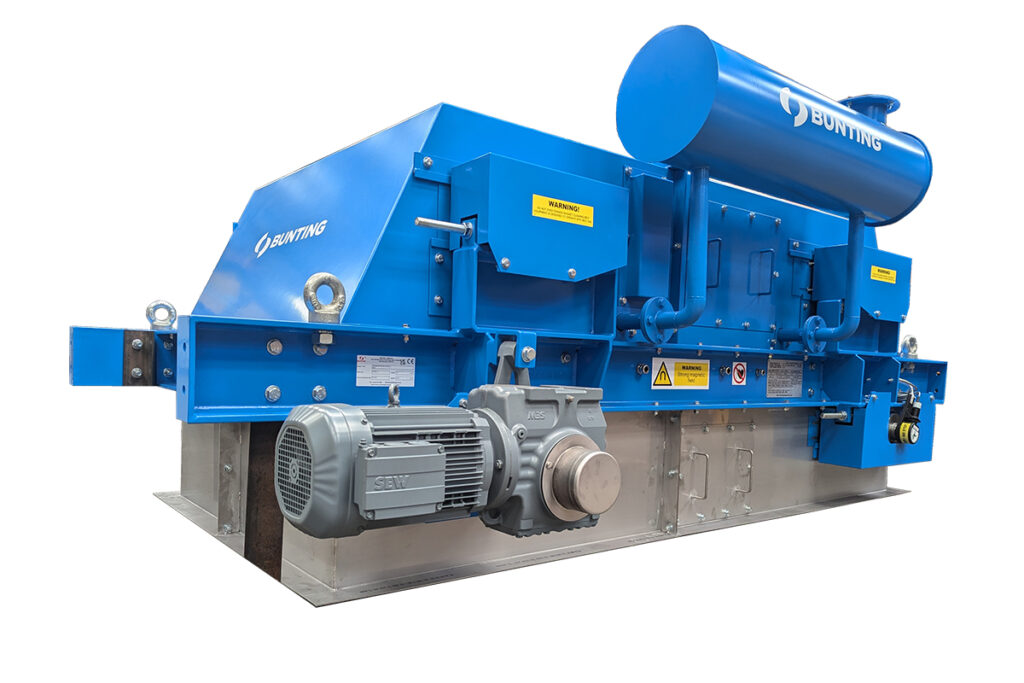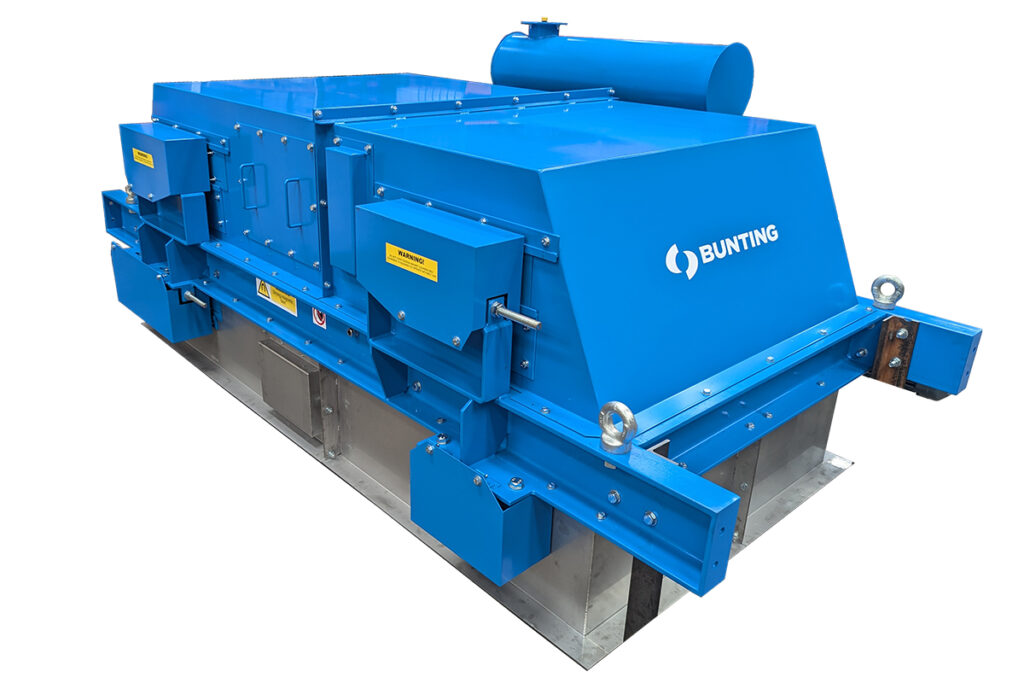ATEX 22 Rated Electro Overband Magnets
By Paul Fears | 06 August 2024
The latest ATEX 22 rated Electro Overband Magnet, designed and built by Bunting, is destined for installation in a UK biomass plant. The nature of the waste wood means that the storage and transportation areas within the plant are classified as ATEX Zone 22, where an atmosphere of air and flammable substances, in the form of powder or dust, is not likely to occur in normal operation, but if it does occur, will persist for a short period only.

Electromagnetic Overband Magnets
Overband Magnets use strong magnetic forces to attract and automatically remove tramp ferrous metal from conveyed materials. In a wood waste biomass plant, this includes a diverse range of ferrous metal including, but not limited to, nails and screws.
An Electro Overband Magnet features an electromagnetic coil immersed in cooling oil and mounted inside a sealed metal box. The magnetic field generated by the electromagnetic coil is projected down towards the conveyor transporting the biomass. The electromagnetic box sits between four-pulleys around which runs a rubber cleaning-belt.
In operation, the magnetic field of the electromagnet attracts tramp ferrous metal up from the conveyed biomass towards the bottom face of the magnet and onto the continually rotating rubber belt. The belt has slats that catch the attracted metal, moving it away from the conveyed material and out of the magnetic field, where it falls under gravity into a waste discharge area.

ATEX Zone 22 rated Electro Overband Magnets
The nature of ferrous metal means that two metal pieces striking each other could create sparks. Such collisions could occur during the extraction of the metal from the conveyed material, or as the metal collides with the surface of the belt, where there could be other items of separated metal. This causes a risk hazard when handling biomass.
Biomass is derived from organic materials, either specifically grown for use in combustion or the by-products of other processes (recycling, agriculture, paper and pulp, timber). The Dangerous Substances and Explosive Atmospheres Regulations (2002) (DSEAR) defines a dangerous substance as one which has the potential to give rise to fires, explosions or other energetic events (HSE, 2003).
Therefore, biomass is classed as a dangerous substance and operators must comply with DSEAR. A key requirement of this legislation is that areas where a flammable atmosphere could arise are demarcated into zones.
When included in a biomass plant, Overband Magnets are located in areas that fall under the Zone 22 ATEX rating, meaning that the area is where an explosive atmosphere in the form of a cloud of combustible dust in air is not likely to occur in normal operation but, if it does occur, will persist for a short period only.
Designing an Electro Overband Magnet for installation within an ATEX Zone 22 presents a number of challenges. Motors, connection boxes, and many other standard components can all be purchased rated to ATEX 22. The Overband Magnet is shrouded in a metal casing, with extended guards reaching down beneath the magnet as far as is practically possible. The rubber cleaning-belts are flame-retardant and anti-static (FRAS).
However, the area of potential metal collision and creation of a spark is directly underneath the magnet, where the separated metal is attracted up to the self-cleaning belt. This area has to remain open for the metal separation to occur. To reduce the already low risk potential of metal striking metal and causing a spark, the Overband Magnet has a fast-moving and continually revolving rubber belt with slats to move any metal away from the capture area quickly and efficiently.
“Understanding the installation and the DSEAR Directive and then limiting the risks is how we design Electro Overband Magnets for ATEX Zone 22 locations,” explained Adrian Coleman, Bunting’s Technical Director. “We regularly build ATEX 22 rated Electro Overband Magnets along with Eddy Current Separators, Drum Magnets, and Permanent Overband Magnets.”